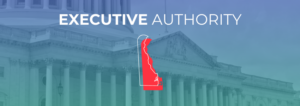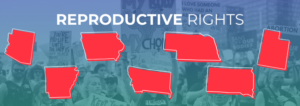State of Justice: August Cases in the Courts
Access to Justice
Michigan – People of Michigan v. Lemons
In a 5-2 ruling, the Michigan Supreme Court overturned a murder conviction in the 2005 death of an infant involving allegations of shaken baby syndrome. The child’s mother was convicted of first-degree murder in 2006 and is currently serving a life sentence. But with evolving expert opinions surrounding shaken baby syndrome casting doubt on the strength of prosecutors’ case against the child’s mother, the court determined that a jury might have reasonable doubt concerning her guilt and ordered the trial court to rehear her case.
Missouri – State of Missouri ex rel. Andrew Bailey v. the Honorable Jason Sengheiser
After previously issuing an injunction, the Missouri Supreme Court vacated the 1990 murder conviction of Christopher Dunn and ordered him to be released from prison after he had served 34 years for a murder he did not commit. A Texas County judge initially vacated Dunn’s conviction in 2020 after two eyewitnesses who had identified Dunn recanted their testimony, but no provision existed in Missouri law that would allow for his release. After lawmakers enacted a bill to provide for Dunn’s release in 2021, two St. Louis prosecutors worked to make the release possible over the objections of the state’s attorney general. A St. Louis Circuit Court judge ordered Dunn’s release, but the attorney general appealed the case to the Missouri Supreme Court, who blocked the release until it could hear arguments in the case before ordering Dunn’s release on July 30.
Ohio – State ex rel. Black v. E. Cleveland
The Ohio Supreme Court ordered the city of East Cleveland to pay a plaintiff who won a $50 million judgement against the city after he was stopped by an officer who beat him and transported him to jail, where he locked the man in a storage closet for four days without access to a bathroom or a place to sleep. The court affirmed the judgment and ordered another $10 million dollars to be paid in interest.
Cannabis Regulation
Michigan – Pinebrook Warren LLC v. City of Warren
The Michigan Supreme Court reversed a Court of Appeals ruling and reinstated a lower court ruling that found that the City of Warren’s Marijuana Review Committee is a governing body and must abide by the state’s Open Meetings Act. The court found that members of the committee violated the Act when they met privately to issue licenses to entities wishing to grow, process, or sell recreational cannabis within city limits.
Nevada – State of Nevada v. Cannabis Equity and Inclusion Community
The Nevada Supreme Court reversed a 2022 district court ruling that allowed the state’s Board of Pharmacy to reschedule recreational cannabis, which was previously a Schedule 1 substance. The decision came in response to a lawsuit filed by the American Civil Liberties Union of Nevada on behalf of an individual who was arrested for possession of cannabis and will allow the Board of Pharmacy to continue listing cannabis as a Schedule 1 substance despite voters legalizing cannabis for medical and recreational use in 2016.
Capital Punishment
South Carolina – Owens, et al. v. Stirling, et al.
The South Carolina Supreme Court ruled that the state’s death penalty – which allows people condemned to death to choose between a firing squad, lethal injection, or a century-old electric chair – is legal. Though several justices expressed reservations about the constitutionality of two of the execution methods, all justices agreed that the state’s death penalty does not violate the Constitution’s prohibition against cruel and unusual punishment because it allows condemned petitioners the opportunity to choose their method of execution. South Carolina currently has 32 inmates on death row, as many as eight of whom may have exhausted traditional appeals. The state has since set an execution date of September 20 for the lead petitioner in the case, Freddie Eugene Owens.
Consumer Protections
Washington – Greenberg v. Amazon.com, Inc.
The Washington State Supreme Court ruled in favor of consumers seeking to move forward with a class action lawsuit after they were victims of price gouging on Amazon.com during the COVID-19 lockdowns. The court did not rule on the merits of the plaintiffs’ claims that Amazon took advantage of the emergency caused by the pandemic, but will allow the consumers to move forward with a class action lawsuit that may allow a jury to conclude that Amazon excessively raised prices during the early days of the pandemic.
Ohio – Berkheimer v. REKM LLC
In a 4-3 decision, the Ohio Supreme Court ruled that a patron could not bring a negligence cause of action against a restaurant that served him chicken advertised and sold as “boneless wings,” which nonetheless contained a piece of bone that punctured the man’s esophagus and caused an infection that required surgery to treat. The court reasoned that restaurant patrons should expect chicken meat to contain pieces of bone because chickens have bones, and reasoned that boneless food is designated as such based on its cooking method rather than the perceived presence or absence of bones.
Environmental Protections
Michigan – Michigan Farm Bureau v. Department of Environment, Great Lakes, and Energy
In a 5-2 ruling, the Michigan Supreme Court reversed a Court of Appeals ruling that determined that permit obligations for agricultural manure dumping were not an administrative rule and were not required to undergo the administrative rulemaking process. The case involved the dumping of manure as fertilizer that can run off into and pollute state waterways.
Executive Authority
Delaware – In re Covid-Related Restrictions on Religious Services
The Delaware Supreme Court ruled in favor of the state’s governor in two cases regarding bans on in-person worship during the Covid 19 pandemic in 2020. Two pastors filed lawsuits arguing that the governor had infringed on their first amendment rights by prohibiting and limiting indoor worship services. The court affirmed a lower court’s dismissal of the suits, citing the issue’s lack of controversy since the restrictions had been lifted.
Immigration
Arizona – Living United for Change in Arizona, et al. v. Fontes, et al.
In a unanimous ruling, the Arizona Supreme Court rejected a challenge to a ballot proposal that is intended to strengthen measures to prevent people from crossing into Arizona from Mexico. If adopted by voters, the proposal will allow police to arrest those who enter the state at a point other than a port of entry; permit judges to order deportations; criminalize the use of forged papers to seek public health benefits and the evasion of legal status requirements for work authorization; and strengthen penalties on the sale of fentanyl. Opponents of the proposal argued it violated the state constitution’s single subject rule, but the court found that all aspects of the proposal are “reasonably related” to “responses to harms relating to an unsecure border,” and ordered the proposal to appear on Arizona ballots this November.
Jury Service
Oregon – West Linn-Wilsonville School District v. The City Of West Linn
The Oregon Supreme Court overturned a circuit court judge’s order prohibiting West Linn residents from serving on the jury for a trial between the city and the West Linn-Wilsonville School District. On July 31, Clackamas County Circuit Court Judge Susie Norby informed attorneys for both parties that residents of West Linn could not be empaneled on the jury selected to hear the dispute between the two parties, in which the school district has accused the city of interfering with the sale of a parcel of land, because “the elevated status that people derive from being part of the West Linn community … would predictably skew their discernment when evaluating accusations of misconduct by their chosen City,” according to Norby. The Oregon Supreme Court reversed Norby’s decision on August 13, agreeing with the city that the dispute could not be fairly considered if residents of the town were not permitted to serve as members of the jury.
Religious Exemptions
Connecticut – Spillane, et al. v. Lamont, et al.
The Connecticut Supreme Court upheld mandatory school vaccinations for the 2024-2025 school year, rejecting a challenge to a 2021 law that banned religious exemptions for requirements that children be vaccinated to attend public schools in Connecticut. The court dismissed five of six claims made by the suit and remanded the last claim – that the law violates the federal Religious Freedom Restoration Act – back to a lower court for further consideration.
Reproductive Rights
Arizona – Arizona Right to Life, et al. v. Fontes, et al.
The Arizona Supreme Court dismissed a challenge from a pro-life group to a proposed ballot initiative that would enshrine abortion access in the state’s constitution, ruling that the summary of the proposal used by groups that collected signatures in support of the measure did not mislead voters or obfuscate the intent of the proposal. The challenge sought to block the proposal from going on the ballot, and the court’s ruling ensures the measure will appear on ballots this November.
Arkansas – Cowles v. Thurston
In a 4-3 opinion, the Arkansas Supreme Court upheld a ruling from state elections officials that found a group collecting signatures for a citizen initiative to enshrine abortion rights in the state constitution improperly submitted documents pertaining to its paid signature gathering effort in violation of state election laws. After signatures gathered by paid canvassers were rejected due to the error, the effort lacked the required number of signatures to achieve ballot access and will not appear before voters this fall.
Iowa – Planned Parenthood of the Heartland, Inc. v. Reynolds
The Iowa Supreme Court declined a request from Planned Parenthood of Iowa that asked the court to rehear its challenge to a state law that bans abortion after six weeks’ gestation with limited exceptions. The court upheld the law in a 4-3 ruling in June. The court’s ruling also remanded the case back to a district court to determine the timeline for removal of an injunction against enforcement of the law that was in place while the court heard the challenge.
Montana – Planned Parenthood v. State
The Montana Supreme Court ruled that a 2013 law prohibiting minors from obtaining abortion care without parental consent is unconstitutional. The court ruled the law violated the Montana Constitution’s privacy clause, holding that a minor’s fundamental right to make decisions about their own body outweighs a parent’s right to consent to their child’s private health care decision and that the law attempted to restrict the rights of minors to make their own healthcare decisions without apparent justification.
Nebraska – Planned Parenthood of Heartland v. Hilgers
The Nebraska Supreme Court ruled that a bill that restricts access to abortion and gender-affirming care for minors does not violate the single subject clause of the state’s constitution, which requires bills to address only one subject. The court ruled that abortions and gender-affirming care are both forms of medical care, allowing the bill to address both types of care.
South Dakota – Life Defense Fund v. Dakotans for Health
The South Dakota Supreme Court reversed a lower court’s decision that dismissed a challenge to a ballot proposal to enshrine the right to an abortion in the state’s constitution. Pro-life group Life Defense Fund had filed a challenge that alleged numerous inconsistencies in the signature-gathering process. The Supreme Court’s ruling remanded the case back to the circuit court to reconsider whether the proposal meets constitutional requirements to appear on ballots this fall.
Utah – Planned Parenthood Association of Utah v. State of Utah
The Utah Supreme court upheld an injunction blocking the enforcement of a state law that bans abortions in nearly all cases in a 4-1 decision in which all three of the court’s female justices joined the majority. The injunction will allow residents to access abortion care until the 18th week of pregnancy and will remain in place until a lower court can rule on the constitutionality of the near-total abortion ban.
Separation of Powers
Kentucky – Jameson v. Judicial Conduct Commission
The Kentucky Supreme Court ruled that the state’s Judicial Conduct Commission lacks the authority to permanently remove judges from the bench, instead finding that the power to permanently impeach judges rests solely with the state’s legislature. The ruling arose from a suit filed by a judge who was permanently removed from his position by the Judicial Conduct Commission in 2022 for numerous ethics and conduct violations. While the court agreed that the judge’s removal from the bench was warranted based on his conduct, it ruled that the Commission overstepped its authority when it permanently removed the judge from the bench.
Takings and Civil Forfeiture
Michigan – In re Forfeiture of 2006 Saturn Ion
The Michigan Supreme Court ruled that the state can only apply the state’s forfeiture laws to vehicles if it can prove the vehicle was used to transport drugs for the purposes of drug trafficking. The case arose from a class action lawsuit filed against Wayne County for its practice of seizing vehicles and holding them until owners pay a “redemption fee” starting at $900. The county sells vehicles that go unclaimed and keeps the profits. The ruling will require county officials to ensure that owners of seized vehicles have met all elements of the crime for which they are accused.
Michigan – Schafer v. Kent County Hathon v. State of Michigan
The Michigan Supreme court ruled that a 2020 ruling in a class action lawsuit involving a state law that allowed municipalities to recoup property tax debt by foreclosing on the homes of delinquent taxpayers and selling them must be applied retroactively. The order required the state to pay owners of tax foreclosed homes the difference between their tax burden and the state’s profit from the sale of their home. The case will make thousands of additional homeowners eligible for repayment from the state.
Nebraska – Nieveen v. TAX 106, et al.
The Nebraska Supreme Court ruled that Nebraska’s delinquent tax sale process – in which the state seizes homes that are delinquent on property taxes and transfers ownership of the homes to private investors who are able to satisfy the tax debt – violates the federal and state constitutions. The court had previously ruled that the state laws permitting delinquent tax sales were constitutional, prompting several homeowners to appeal to the U.S. Supreme Court. After the Court ruled in Tyler v. Hennepin County that government laws that permit the transfer of profits in excess of what is owed on a delinquent tax debt are unconstitutional takings, the Nebraska cases were remanded back to the state’s Supreme Court, which followed the U.S. Supreme Court’s ruling to hold that state laws permitting delinquent tax sales are unconstitutional.
South Dakota – Strom Trust, et al. v. SCS Carbon Transport, LLC
The South Dakota Supreme Court sided with landowners in their dispute with a company that aims to build an $8 billion carbon capture pipeline through several states. The company conducted surveys on private land without securing permission from landowners, intending to take possession of the land through eminent domain. The landowners sued to prohibit the company from trespassing on their land, and the company argued that it should be entitled to acquire private land for its pipeline due to its status as a common carrier, a company that transports goods such as public utilities for a fee. But the state’s highest court disagreed that the company has shown that it qualifies as a common carrier and remanded the case back to a lower court to determine whether the company meets the criteria.
Voting Rights
Idaho – Labrador v. Idahoans for Open Primaries
The Idaho Supreme Court dismissed a challenge to a ballot proposal that would implement open primaries and ranked choice voting in Idaho if adopted by voters. The challenge was brought by the state’s attorney general, who alleged that the proposal violates the state constitution’s single subject clause and accused outside interest groups of intentionally misrepresenting the impact of the proposal when collecting signatures to get the measure on the ballot. The court issued a procedural ruling, ordering the attorney general to file the claim in district court rather than directly with the Supreme Court.
Illinois – Collazo v. Illinois State Board of Elections
The Illinois Supreme Court affirmed a lower court ruling that struck down a law passed earlier this year barring political parties from drafting legislative candidates after failing to field candidates to run in the primary election. Traditionally, candidates drafted following the primary have been permitted to appear on the general election ballot if they collect the required number of nominating petition signatures before the June deadline. The court’s decision was reached on procedural grounds and stemmed from the recusal of two justices from hearing the case, which prevented the court from reaching a concurrence of four votes on a majority opinion as required by the state constitution. The court’s ruling will take effect as though it were a lower court ruling and will carry no precedent.
Minnesota – Minnesota Voters Alliance v. Hunt
The Minnesota Supreme Court upheld a 2023 state law that restored voting rights to people with felony convictions. The court upheld a lower court’s rejection of a challenge to the law by the conservative group Minnesota Voters Alliance, finding that the challengers lacked standing and failed to prove the legislature overstepped its authority when it passed the measure. The ruling will make approximately 55,000 people eligible to vote in the November election.
Montana – State of Montana v. Montana First Judicial District Court
The Montana Supreme Court denied a request by the Montana Secretary of State that had asked the court to vacate a lower court order that required the signatures of inactive voters be counted for ballot initiatives. The unanimous court stated that the secretary of state failed to convince the court that the lower court order was made in error.
Nevada – Aguilar v. Washoe County Board of County Commissioners
The Nevada Supreme Court declined to consider a request from the state’s attorney general and top election official and attorney general after officials from its second-largest county initially refused to certify recount results from the June primary election. The state officials asked the court to reaffirm that county officials have no authority to determine whether or not to certify election results, but the court said the matter was moot because the county officials had voted to certify the results after voting against certification the previous week. The court also clarified that it may exercise its authority to clarify the state officials’ sole authority to certify election results if it becomes an issue again.
New York – Stefanik, et al. v. Hochul, et al.
In a 6-1 opinion, the New York State Court of Appeals ruled that the governor and state lawmakers did not exceed their authority under the state constitution when they enacted a measure in 2023 to expand access to mail voting. The decision from the state’s highest court affirmed rulings by every lower state court that also dismissed the suit, which was filed by state and federal Republican lawmakers and conservative groups.
Wisconsin – Strange v. Wisconsin Elections Commission
The Wisconsin Supreme Court declined to hear a plea from an employee of the Democratic National Committee that sought to remove Green Party presidential candidate Jill Stein from the state’s November general election ballots. The Wisconsin Election Commission had previously dismissed a complaint the DNC staffer filed with that body, which alleged that the Green Party has no qualified presidential electors in the state because it failed to nominate candidates for the Wisconsin Assembly or Senate by the deadline in June as required by election law. The staffer bypassed lower courts to file the complaint directly with the Wisconsin Supreme Court. The court’s decision not to hear the challenge will allow Stein to appear on Wisconsin ballots in November.
Workers’ Rights
Arizona – Gilmore, et al. v. Gallego, et al.
In a unanimous ruling, the Arizona Supreme Court ruled that the city of Phoenix violated the state constitution’s gifts clause when it paid city employees for release time to conduct union business during work hours, a standard practice found in collective bargaining agreements across the country. The decision will jeopardize similar agreements made with public sector unions by municipalities around the state. The challenge was brought against the city by non-unionized workers and was litigated by the Goldwater Institute, a conservative think tank. Justice Clint Bolick, a former litigator and vice president at the Goldwater Institute, authored the court’s opinion. Two lower courts had rejected the challenge before it was appealed to the Supreme Court.
California – Bailey v. San Francisco Attorney General’s Office, et al.
The California Supreme Court reaffirmed the standard for actionable harassment under the state’s Fair Employment and Housing Act, confirming that a single use of a racial epithet can constitute actionable harassment under the Act, and that employers who prevent employees from reporting instances of actionable harassment can be found to have engaged in retaliation under the Act’s definition.
California – Castellanos v. State of California
California Supreme court unanimously upheld a law that classified app-based drivers as independent contractors rather than employees of rideshare apps. Drivers began a lawsuit that challenged the law’s constitutionality, arguing that it conflicted with and limited the legislature’s power to regulate workers’ compensation. The court rejected the argument, setting the stage for future litigation involving workers’ compensation for app-based drivers in California.
California – Stone, et al., v. Alameda Health System
In a unanimous opinion, the California Supreme Court ruled that public employers are not subject to the provisions of the Private Attorneys General Act, a California law that allows workers to sue their employers for violations of state labor laws. The ruling also found that public employers are not subject to laws that require employers to provide daily meal and rest breaks.
Michigan – Mothering Justice v. Attorney General
In a split 4-3 ruling, the Michigan Supreme Court found that Republican lawmakers violated the rights of voters when it adopted a citizen-initiated ballot proposal to overhaul the state’s minimum wage, tipped wage, and sick leave policies, and then made significant changes to the proposal through the state’s “adopt-and-amend” legislative practice. Per the practice, the legislature is permitted to adopt a citizen-initiated ballot proposal rather than allowing it to go before voters. Once proposals are adopted, the legislature is permitted to amend the proposals. But the court found the legislature exceeded its authority by making changes to the wage and sick leave proposal that significantly weakened the proposal’s effects. The court’s ruling ordered the legislature to instead adopt the original proposal. The ruling will have massive implications for the state’s workers, and the state has asked the court to clarify how the ruling should be implemented.
Minnesota – Alonzo v. Menholt Farms, Inc.
The Minnesota Supreme Court ruled that plaintiffs may file claims against entities that negligently hire workers as independent contractors, recognizing a novel common law tort action in Minnesota. In the case, which stemmed from a claim filed against a company that failed to perform a background check on a contracted driver who caused an automobile accident, the court ruled that business entities who fail to exercise reasonable care during hiring may be liable for the negligent actions of independent contractors.
New Jersey – Delaware River Joint Toll Bridge Commission v. George Harms Construction Co., Inc.
In a unanimous decision, the New Jersey Supreme Court ruled that a bi-state compact between New Jersey and Pennsylvania empowers the Delaware River Joint Toll Bridge Commission to issue interstate project labor agreements. The decision overturned a lower court ruling that found the commission’s authority to issue the agreements, which are collective bargaining agreements that allow working conditions to be negotiated before workers are hired, was constrained by Pennsylvania law.
Wisconsin – Amazon Logistics, Inc. v. Labor and Industry Review Commission
The Wisconsin Supreme Court declined to review an appeal of a Court of Appeals decision that determined that drivers for Amazon who participated in the company’s Flex program to deliver packages are not independent contractors as the company had argued but are instead employees who are entitled to benefits. The court found that granting review would result in no useful development of the law.















